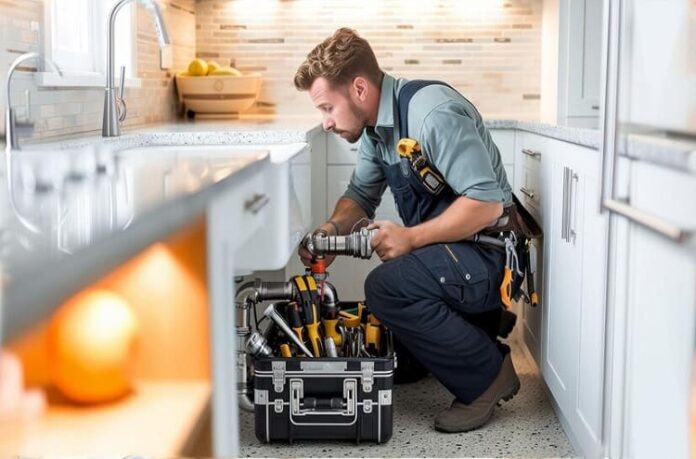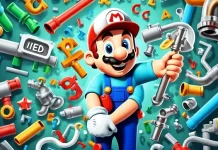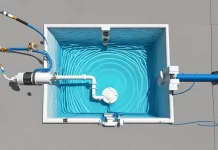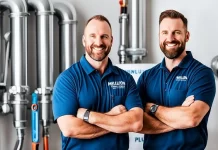
As a homeowner, few things are more daunting than the unknown lurking behind walls and beneath floors – the intricate web of pipes and wires that keep your home running smoothly. Mastering the basics of plumbing and electrical systems can empower you to tackle minor issues head-on, saving you both time and money while ensuring the safety and comfort of your abode.
This comprehensive guide aims to equip homeowners with the knowledge and confidence to understand, maintain, and even perform basic repairs on their plumbing and electrical systems, fostering a sense of self-reliance and preparedness in the face of common household challenges.
Overview
In the ever-evolving landscape of homeownership, one essential aspect often overlooked is the intricate network of plumbing and electrical systems that silently operate behind the scenes. These vital components are the backbone of our modern living, ensuring a seamless flow of water and power throughout our homes. Yet, despite their crucial roles, many homeowners find themselves ill-equipped to navigate the complexities of these systems, relying heavily on costly professional services for even the most minor of issues.
However, homeowners can unlock a world of benefits by understanding the fundamentals of plumbing and electrical systems. You can save substantial amounts of money by tackling minor repairs yourself and gain a heightened sense of self-sufficiency and control over your living environment. Moreover, regular maintenance and timely interventions can extend the lifespan of these systems, preventing costly breakdowns and ensuring the safety of your loved ones.
Understanding Plumbing Systems
A robust plumbing system responsible for delivering fresh water and removing waste is at the heart of any well-functioning home. This intricate network of pipes, valves, and fixtures is a marvel of engineering, but even the slightest issue can disrupt the harmony of daily life.
Common plumbing issues, such as leaks, clogs, and low water pressure, can often be traced back to simple causes like worn-out washers, mineral buildup, or aging pipes. Identifying these problems early is crucial, as even a seemingly minor drip can waste gallons of water and drive up utility bills over time.
“A leaky faucet may seem minor, but over time, it can waste gallons of water and increase your utility bills.”
Regular maintenance, such as checking for leaks, cleaning drains, and inspecting appliance hoses, can go a long way in preventing costly repairs and ensuring the longevity of your plumbing system.
Mastering Plumbing Repairs
While some plumbing issues may require the expertise of a licensed professional, there are numerous DIY plumbing repairs that homeowners can confidently undertake. From unclogging drains and fixing leaky faucets to replacing toilet components and fixing minor pipe leaks, these tasks can be accomplished with the right tools and some know-how.
For instance, unclogging a drain can often be as simple as using a plunger or a drain snake, while replacing a faulty faucet cartridge or worn-out washers can breathe new life into your kitchen or bathroom fixtures. Even more complex tasks like repairing minor pipe leaks can be manageable with the proper techniques and safety precautions.
However, it’s essential to approach plumbing repairs cautiously, as water can quickly cause extensive damage if not handled correctly. Always prioritize safety by turning off the main water supply before attempting any major repair. Don’t hesitate to call in a professional if the task seems beyond your skill level or comfort zone.
Understanding Electrical Systems
Parallel to the intricate plumbing network, your home’s electrical system is a complex web of wires, circuits, and components that power our modern lives. From lighting and appliances to heating and cooling systems, a well-functioning electrical system is the backbone of a comfortable and efficient living environment.
However, with great power comes great responsibility, and electrical safety should always be a top priority. Faulty wiring, overloaded circuits, and outdated electrical panels can pose serious fire hazards and risk your family’s safety. In fact, according to the National Fire Protection Association, approximately 25% of all home fires are caused by electrical problems.
Common electrical issues to watch out for include flickering lights, frequently tripped circuit breakers, outlets that don’t work, and warm or discolored outlet covers or switch plates – all potential warning signs of underlying electrical problems that require prompt attention.
Mastering Electrical Repairs
While electrical work can be inherently dangerous, homeowners can safely undertake certain DIY electrical repairs with the proper knowledge and precautions. These tasks can often be accomplished without needing a licensed electrician, from replacing light fixtures and outlets to installing GFCI outlets and upgrading electrical panels.
However, before tackling any electrical repair, it’s crucial to follow essential safety guidelines. Always turn off the power at the circuit breaker or main electrical panel, and use a non-contact voltage tester to verify that the circuit is truly de-energized. Wear appropriate protective gear, such as insulated gloves and eye protection, and never attempt to work on live circuits unless you are a licensed professional.
| Task | Safety Precautions |
|---|---|
| Replacing light fixtures | Turn off power at the circuit breaker, verify that the circuit is de-energized |
| Installing GFCI outlets | Turn off the power at the circuit breaker, and follow the wiring diagram carefully. |
| Replacing electrical panels | Hire a licensed electrician (complex and potentially dangerous task) |
Remember, it’s always better to avoid caution and seek professional assistance when in doubt, as electrical work can be inherently hazardous if not performed correctly.
Importance of Regular Maintenance
Proactive maintenance is the key to ensuring the longevity and optimal performance of both your plumbing and electrical systems. Just as you regularly service your car or schedule routine medical checkups, your home’s vital systems deserve the same attention and care.
Regular plumbing maintenance can include tasks such as:
- Inspecting pipes and fixtures for leaks
- Flushing water heaters to remove sediment buildup
- Checking and cleaning drains and vents
- Monitoring water pressure levels
On the electrical front, routine maintenance can encompass:
- Testing GFCI outlets and circuit breakers
- Checking for loose connections or frayed wiring
- Inspecting electrical panels for signs of overheating or corrosion
- Ensuring proper grounding and bonding of electrical components
By staying vigilant and addressing potential issues early, you can prevent costly emergencies and ensure the safe and efficient operation of your home’s vital systems. Consider scheduling annual plumbing and electrical inspections by licensed professionals to catch any problems before they escalate.
Tip: Schedule annual plumbing and electrical inspections to catch issues early and prevent costly emergencies.
Conclusion
Mastering the intricacies of plumbing and electrical systems is an empowering journey every homeowner should embark upon. By understanding the fundamental components, common issues, and basic repair techniques, you can take control of your living environment and minimize the need for costly professional services.
Remember, knowledge is power, and arming yourself with the skills to tackle minor plumbing and electrical repairs can save you money and instill a sense of pride and self-reliance. Whether fixing a leaky faucet, unclogging a drain, or safely replacing an outlet, these skills will serve you well throughout your homeownership journey.
However, it’s crucial to approach these tasks with caution and respect, always prioritizing safety and knowing when to seek professional assistance. Regular maintenance and proactive inspections are key to preventing emergencies and ensuring the longevity of your home’s vital systems.
As you embark on mastering plumbing and electrical, don’t hesitate to reach out with questions or share your experiences. Together, we can demystify these seemingly daunting systems and empower homeowners to take control of their living environment.









